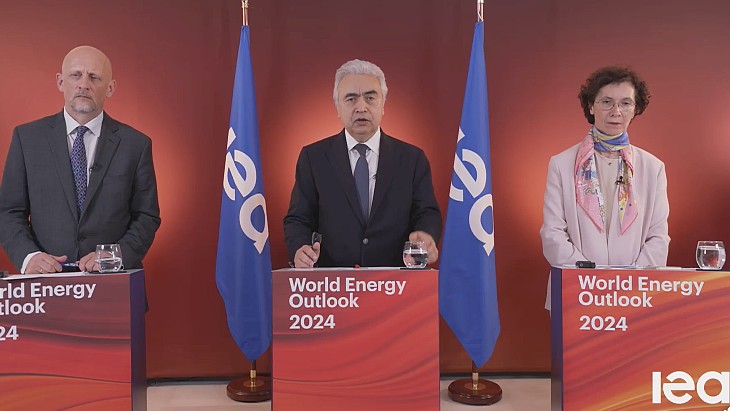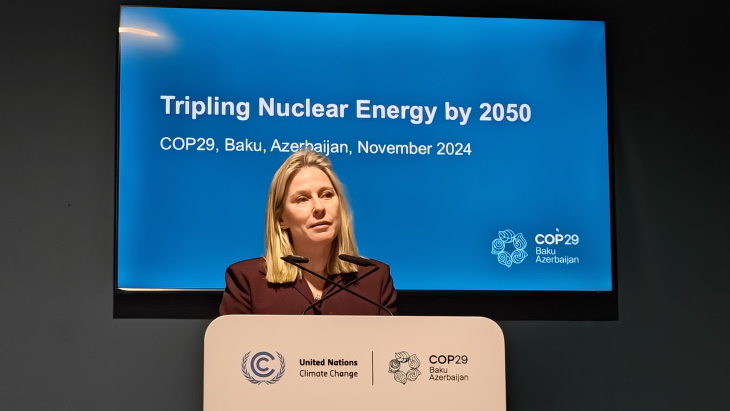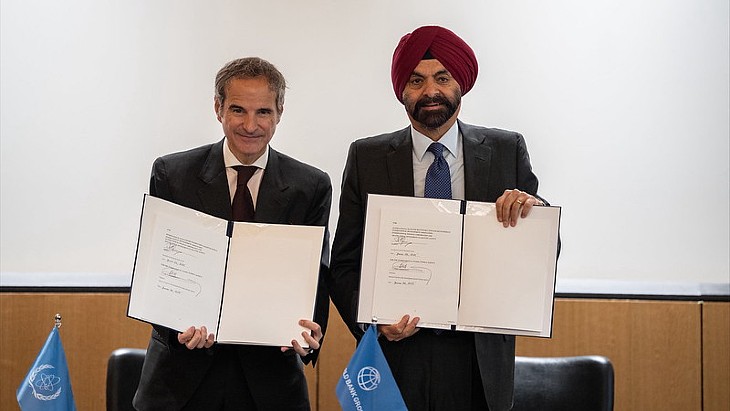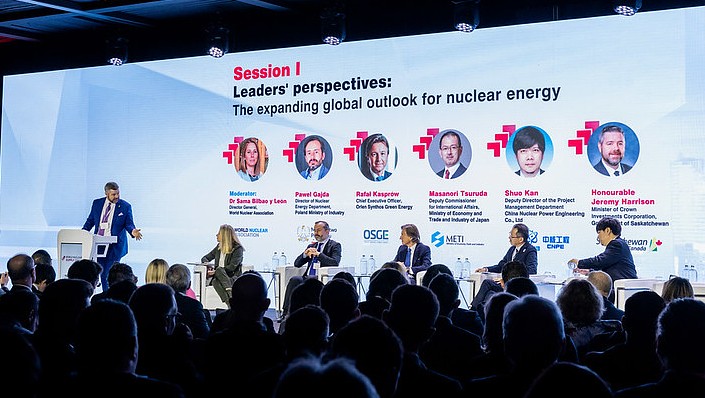IAEA report says global power demand requires large increase in nuclear
.jpg)
In 2018, nuclear power produced about 10% of the world’s electricity, accounting for around one-third of all low carbon electricity. As of today, the world's 450 operating nuclear power reactors have a near record level of 399.7 GWe total net installed capacity.
The 39th annual edition of Energy, Electricity and Nuclear Power Estimates for the Period up to 2050 offers a mixed estimate of nuclear power's future contribution to global electricity generation, depending in part on whether significant new capacity can be added to offset potential reactor retirements. Its projections for nuclear electrical generating capacity are presented as low and high estimates, reflecting different driving factors that have an impact on the worldwide deployment of this low carbon energy source.
The new projections to 2030 see generating capacity declining by some 8% in the low case and increasing by 25% in the high estimate. By 2050, it is seen falling by 6% in the low scenario and rising by 80% in the high case. Compared with last year, the new estimates to 2050 are down by 33 GWe in the high case and up by 15 GWe in the low case.
"The 2019 projections contain fewer uncertainties compared with previous years due to recent announcements on the future of the existing fleet in some regions and long term plans for expansion," the IAEA said. "Significant new capacity may be needed to offset possible reactor retirements due to age, competitiveness or other factors."
"In some regions, over the short term the low price of natural gas and the impact of subsidised renewable energy sources are expected to continue to affect nuclear power's growth prospects. Still, interest in nuclear power remains strong in several regions, particularly in the developing world, and commitments agreed under the Paris Agreement and other initiatives have the potential to support its development," it said.

_99697.jpg)









